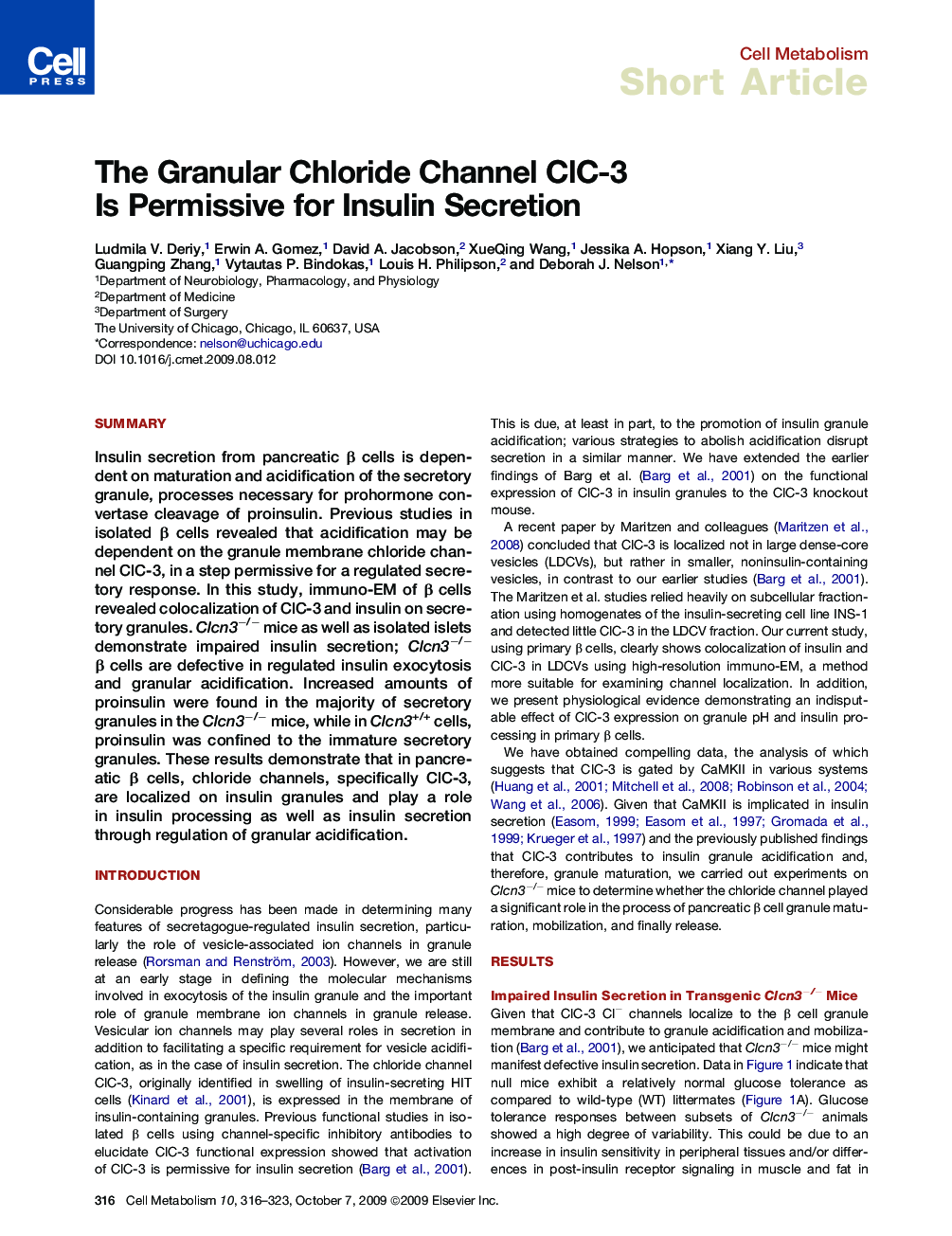| Article ID | Journal | Published Year | Pages | File Type |
|---|---|---|---|---|
| 2793342 | Cell Metabolism | 2009 | 8 Pages |
SummaryInsulin secretion from pancreatic β cells is dependent on maturation and acidification of the secretory granule, processes necessary for prohormone convertase cleavage of proinsulin. Previous studies in isolated β cells revealed that acidification may be dependent on the granule membrane chloride channel ClC-3, in a step permissive for a regulated secretory response. In this study, immuno-EM of β cells revealed colocalization of ClC-3 and insulin on secretory granules. Clcn3−/− mice as well as isolated islets demonstrate impaired insulin secretion; Clcn3−/− β cells are defective in regulated insulin exocytosis and granular acidification. Increased amounts of proinsulin were found in the majority of secretory granules in the Clcn3−/− mice, while in Clcn3+/+ cells, proinsulin was confined to the immature secretory granules. These results demonstrate that in pancreatic β cells, chloride channels, specifically ClC-3, are localized on insulin granules and play a role in insulin processing as well as insulin secretion through regulation of granular acidification.
